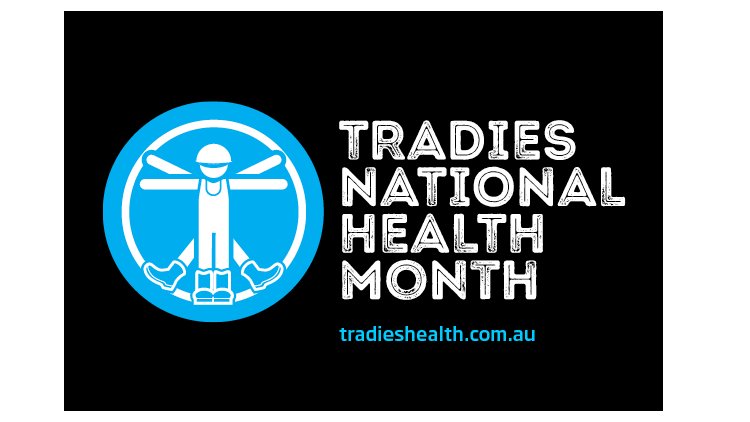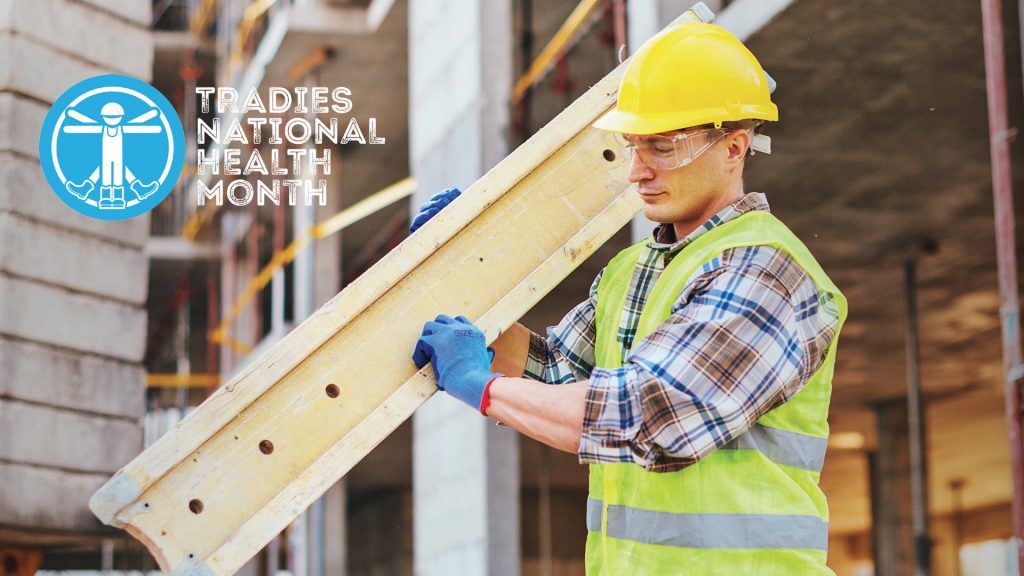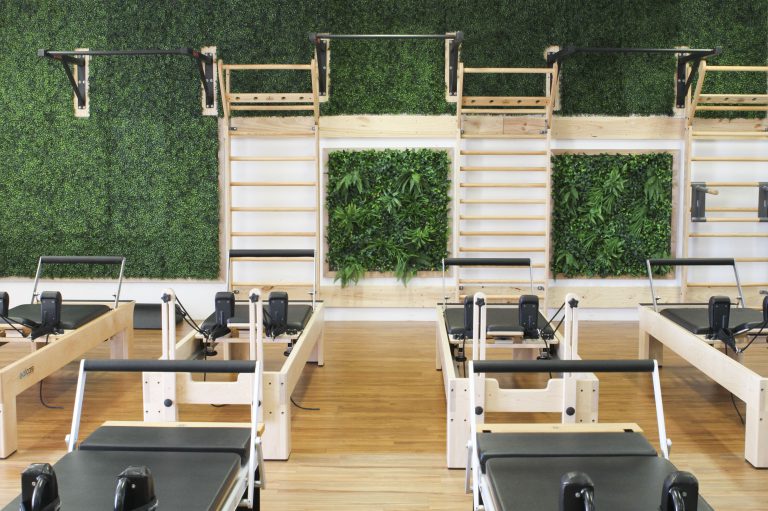Every year in August the Australian Physiotherapy Association (APA) run a health campaign: Tradies National Health Month. The aim of the campaign is to help raise awareness of how injuries can be avoided in the trade work industry and how to prevent small injuries progressing into anything more persistent. Which is exactly what this week’s article is about! The trade industry involves such physically demanding and heavy work that it is super important for us to help you know how to best look after your body throughout your career.
A survey was conducted this year among trade workers across Australia, both male and female, from age 16 all the way to 70+ years old. Let’s have a look at what they found:
- Awareness of healthy eating among trade workers has improved with 69% saying they try to make healthy choices with their diet. Biggest high-5 goes to Construction Managers of whom 80% try for a healthy diet!
- Less than half (43%) say they exercise out of work and 39% said they don’t need to do any formal exercise because their job is physically demanding
- 45% said they find it hard to do their job if they are not at their physical best however 79% of trade workers agreed they took care of their work tools while only 47% agreed that they took care of their bodies!
- 54% said they often have aches and pains as a result of their job
- 64% reported that had been injured at work within their current occupation role with soft tissue injuries being the most common and the most frequently injured body area was the lower back. Those trade workers who had ever been injured before thought it was likely or very likely that they would be injured again
So what does this mean and what can you do to keep your body in peak condition for the demands of trade work? We’ll tackle each of these main points one at a time:
1. Healthy Eating
Aside from the well-recognised benefits of healthy eating such as weight management and prevention of many diseases (eg. Diabetes), it also is vital to our physical well-being. Specifically for exercise and the physically demanding work that tradespeople do, you need to be providing your body with the right ingredients not only for energy production but also to help your body recover. By this survey it seems as though trade workers are definitely on the right track for this so let’s keep it going!
2. Exercise
The World Health Organisation recommends 150 minutes of moderate-intensity or 75 minutes of vigorous-intensity aerobic exercise per week as well as muscle strengthening exercises 2-3 days per week. A large portion of people coming through our clinic are NOT achieving this and one of the most common things we hear from trade workers is that they don’t exercise out of work because their work is physical enough. There is no doubt about the physically demanding nature of trade work however it has been shown that it does not give the same health benefits as structured exercise. In order to reduce the risk of all-cause mortality, coronary heart disease, high blood pressure, stroke, type 2 diabetes, metabolic syndrome, colon and breast cancer, and depression trade workers NEED to achieve the above recommendations for exercise outside of work.

3. The Number 1 Tool – Your Body!
As with any form of Physical Activity (whether this be a new sport, taking up a new exercise regime or completing an Ironman) you have to train your body for it! Work is no different to this. When your work is physically demanding your body has to be physically fit enough to keep up with these demands. If work load is greater than what your body can tolerate it can start to suffer in the form of illness and injury. As a tradie your body is literally your greatest tool. With 79% of trade workers looking after after their work tools while only 47% look after their bodies this is definitely something we need to keep working on!
4. Work, Work, Work, Work, Work
Apologies if anyone ended up with Rihanna’s song stuck in their heads but my point here is that work is repetitive! This means it is easy for overload/repetitive strain injuries to occur. And something that we hear A LOT from people who do physical work is that they believe these aches and pains are “just part of the job” or that the aches are “wear and tear” from years of physical labour. They don’t believe there is anything that can be done about it and so don’t seek help or treatment. This is NOT the case!! A physical job does not automatically mean you need to just put up with aches and pains. They are a part of life and will happen at times regardless of occupation however there is so much you can do to prevent and manage them such as hands on treatment techniques, specific exercises and learning how to look after your body while completing your work tasks.
5. Recurrent Injuries
It is important to know that having an injury at work does not mean that you are destined to have another one. If an injury occurs it is important to seek the right medical and health advice right from the start to optimise your recovery process. There are also many preventative strategies that can be used, one of the most important being maintaining a high level of physical fitness. Others include implementing safe manual handling techniques, workload management and maintaining good general health.
So what can I do about it?
Here are some tips from the APA this year about how to best look after your health at work:
- warm up each morning before you start work with some targeted stretches (based on what your work involves)
- pace your workload and rate throughout the day to avoid issues related to overuse and fatigue
- communicate well with your workmates to ensure you are working in the most efficient and safe manner
- be willing to speak up if you feel uneasy about the level of risk you are exposed to at work
- don’t put yourself at risk of injury by rushing
- be willing to say ‘no’ when required to ensure both your own safety and that of others, even if it might make you unpopular at that moment. Worksite supervisors and employers are legally responsible for safe worksites and conditions and will be held accountable if there are breaches of work site regulations
- seek advice from your physiotherapist if you experience any aches or pains that are persistent, rather than waiting till it’s bad enough to stop you from continuing work
- manage injuries immediately with the RICE method (rest, ice, compression, and elevation).

Allissa King
Physiotherapist


